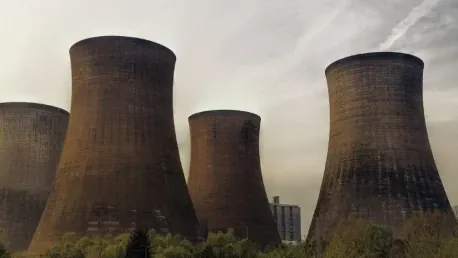Lagos State has taken a significant step forward in sustainable development by partnering with Dutch firm Harvest Waste Consortium to establish a high-efficiency waste-to-energy plant at the Epe landfill. This groundbreaking initiative aims to transform municipal solid waste, along with commercial and industrial waste, into clean energy. Governor Babajide Sanwo-Olu signed the agreement, describing it as a monumental milestone that will help tackle the inefficiencies of current waste disposal practices. This collaboration is expected to drastically reduce environmental pollution, improve air quality, and mitigate water contamination, marking a new era in waste management for Lagos.
The waste-to-energy plant is set to process around 2,250 tonnes of waste daily, diverting over 95% of waste from landfills in the process. Such a shift in waste management practices is anticipated to have a substantial impact on the city’s environmental footprint. Additionally, the plant is projected to generate between 60 and 75 megawatts of baseload electricity annually. This capacity could potentially remove approximately 40,000 homes from the national electricity grid, thereby enhancing both energy security and diversification for Lagos State. Governor Sanwo-Olu and his team view this project as an innovative and sustainable solution to the challenges posed by Lagos’ ever-increasing volume of municipal solid waste due to rapid population growth.
Strategic Partnership and Extensive Consultations
The partnership between Lagos State and the Netherlands-based Harvest Waste Consortium is the result of extensive consultations and knowledge exchange. This collaborative endeavor was facilitated by the Ministry of the Environment and Water Resources and meticulously overseen by the Lagos State Office of Public-Private Partnership (PPP). Governor Sanwo-Olu acknowledged the escalating challenges posed by the growing volume of municipal waste and expressed optimism that the new plant would provide a long-term, sustainable solution.
The extensive consultations that led up to this partnership were crucial in ensuring that the project aligns with both local and international standards. Experts from both sides engaged in rigorous discussions to address technical, environmental, and social concerns. This thorough approach guarantees that the waste-to-energy plant will be both effective and sustainable. The project represents not just a technological advancement but also a model for other cities contending with similar waste disposal challenges.
Environmental and Energy Benefits
The plant’s ability to divert 95% of waste from landfills is a key feature that promises significant environmental benefits. In a city where landfill overflow often results in air and water pollution, this new plant stands as a crucial development. By converting waste into energy, the facility will contribute to improved air quality and reduce the contamination of water bodies. Additionally, the energy generated from waste will significantly contribute to the city’s energy grid, which has often struggled with stability and reliability.
Furthermore, producing between 60 and 75 megawatts of electricity annually will alleviate some of the pressure on Nigeria’s national grid. This will result in energy diversification and greater energy security for Lagos residents. The anticipated environmental improvements are expected to make the city more livable, reduce health risks associated with pollution, and ultimately offer a higher quality of life. Moreover, this initiative demonstrates Lagos’ commitment to leveraging cutting-edge technology for sustainable development.
Long-Term Ecological and Economic Impact
The broader impact of this waste-to-energy plant extends beyond immediate environmental benefits. By implementing such a high-efficiency plant, Lagos is setting a benchmark for sustainable urban management. Future developments in waste management technologies and strategies can draw inspiration from this project. The ecological benefits are clear, but the economic implications are equally noteworthy. As energy becomes more affordable and reliable, the overall economic health of Lagos is likely to improve.
Moreover, the project will create numerous job opportunities in various sectors, from engineering to facility management. This will foster economic growth and provide a more stable employment landscape. The collaboration signifies a forward-thinking approach to urban challenges, integrating advanced technology to create long-term benefits. It underlines the importance of international partnerships in tackling global issues such as waste management and energy sustainability.
Conclusion: A Comprehensive Approach to Urban Sustainability
Lagos State has made a major leap towards sustainable development by partnering with Harvest Waste Consortium from the Netherlands to build a high-efficiency waste-to-energy plant at the Epe landfill. This innovative project aims to convert municipal as well as commercial and industrial waste into clean energy. Governor Babajide Sanwo-Olu, who signed the agreement, hailed it as a monumental milestone that addresses the current inefficiencies in waste disposal practices. The partnership is expected to significantly reduce environmental pollution, improve air quality, and mitigate water contamination, ushering in a new era of waste management for Lagos.
The state-of-the-art waste-to-energy facility will process about 2,250 tonnes of waste daily, diverting over 95% from landfills. This transformative approach is expected to substantially lower Lagos’ environmental impact. Furthermore, the plant is estimated to generate between 60 and 75 megawatts of baseload electricity annually, which could potentially supply power to approximately 40,000 homes, lessening dependence on the national grid. Governor Sanwo-Olu and his team view this project as a forward-thinking, sustainable solution to the mounting waste issues driven by Lagos’ rapid population growth.









